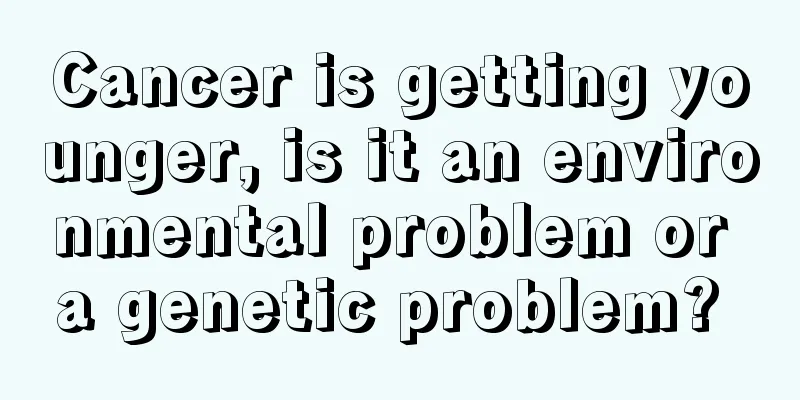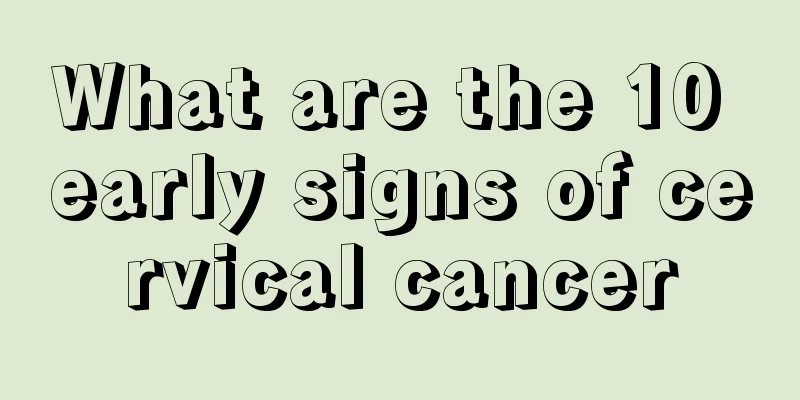Cancer is getting younger, is it an environmental problem or a genetic problem?

|
Cancer is not formed in a short period of time. It takes a fairly long process, from a dozen years at least to several decades at most. This means that it takes many years from the time you are exposed to a carcinogenic factor to the actual formation of a diagnosable cancer. This is why most cancer patients are middle-aged and elderly people. Take smoking as an example. Smoking is not carcinogenic and you will get lung cancer after smoking a few cigarettes or a few months. The most risky time is after smoking for twenty years (a pack of cigarettes a day, or twenty cigarettes, for twenty years, the so-called smoking index is 200 cigarettes a year). If you started smoking in your teens, you would be almost forty years old. If you started smoking in your twenties, you would be in your forties or fifties. If a person of a few years old gets lung cancer, it certainly cannot be attributed to smoking. So, does cancer only strike middle-aged and elderly people, not young people? Of course not! The causes of cancer are very complex and involve many factors. In fact, cancer also affects young people, but young people are less likely to suffer from cancer than middle-aged and elderly people. In recent years, the incidence of cancer has indeed tended to be younger, and the age of cancer onset is getting lighter. What is the reason for this? Is it an environmental problem or a genetic problem? This needs to be analyzed in detail. 1. When young people develop gastric cancer, genetic factors must be considered, and the younger they are when they develop cancer, the more they should consider the possibility of genetics. Environmental factors, including dietary factors, cause cancer, which requires a fairly long process, and it is not possible to form cancer in a few months or years. Of course, this does not completely exclude environmental factors, but the younger you are, the more you should consider genetic factors, and not attribute it to environmental factors, although environmental factors may also be one of the factors or one of the inducements. So how to determine whether it is genetically related? This requires asking about family history. Family history of blood relatives, especially direct blood relatives, whether anyone has cancer, how many people have cancer, and what kind of cancer they have, this is of great reference value for judgment. Generally speaking, the more direct blood relatives have cancer, the younger they are when they develop cancer, especially if they suffer from cancers such as breast cancer, ovarian cancer, endometrial cancer, colon cancer, etc., then the possibility of family genetics is greater. In addition, necessary genetic testing should be combined to make a judgment. 2. In addition to genetic factors, environmental factors must also be considered. As mentioned earlier, the younger you are, the more you need to consider genetic factors, but this does not mean that environmental factors are excluded. When we say that cancer is getting younger, we do not mean that people are only a few years old, but that the overall age of cancer is tending to be younger. For example, the age of cancer is moving forward, and people in their twenties and thirties are getting cancer. These people did not originally have a high risk, but now it seems that more people in this age group are getting cancer. For people in their twenties and thirties who develop cancer, although genetic factors are more important than those in the middle-aged and elderly, the proportion of environmental factors is still significantly greater than that of people who are only a few years old or in their teens. An important factor in environmental carcinogenesis is time. For example, smoking does not mean that you are prone to cancer after smoking for only one or two years. The younger age of cancer may be due to environmental issues or genetic factors. It depends on the specific circumstances. |
<<: If I have a brain tumor, will there be any side effects from chemotherapy?
Recommend
How can I speed up blood circulation?
Recently, there have been more and more cases of ...
Low basal metabolic rate
Our body's daily life activities require a lo...
How to do a self-examination for bone cancer
How to conduct self-examination for bone cancer? ...
Nursing measures for postoperative infection of endometrial cancer
We all know that endometrial cancer is a serious ...
Does eating bayberry when you have chickenpox have any impact on your health?
There are many precautions during the chickenpox ...
Differential diagnosis of mediastinal teratoma
Most teratomas are located in the anterior medias...
Can men's sperm be eaten?
According to experts, there are both advantages a...
Why is my face dull and lifeless?
The aging symptoms on women's bodies are more...
Safety tips for babies
The growth of a baby is not only a responsibility...
Does sponge contain formaldehyde
Sponges are a material that absorbs water very we...
Can steaming black fungus with red dates remove freckles?
Some people's skin surface will become very b...
Can winter melon be frozen
Winter melons are usually huge in size due to the...
The efficacy and function of Tanzanite
Tanzanite is a kind of gemstone. Many women like ...
What is primary liver cancer? Check out the three major diagnostic methods for primary liver cancer
Life is spent with diseases big and small. Primar...
Can I still cook rice after soaking it overnight?
Normally when cooking rice, everyone washes the r...









